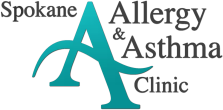Sinusitis
What is Sinusitis?
Sinusitis is the infection of the interior sinus spaces in the head . Sinusitis affects millions of Americans each year from young infants to senior citizens. It causes an enormous amount of school and work absenteeism, and results in frequent medical visits, x – rays, over – the – counter remedies, and prescription antibiotics.
The nose plays a very critical role in protecting the sinuses. Sinus infections are common in patients with chronic nasal congestion. There are four sets of sinus cavities that open to the nasal passageway through tiny openings called ostia. Normally, the sinuses are sterile, being cleansed by a thin layer of mucus that is swept towards their openings by a carpet of tiny hairlike projections called cilia. When inhaled, particles of dust, or allergens, or viruses, or bacteria are trapped in the mucous secretions. They will become quickly inactivated by local inflammatory cells. After swallowing, they are further inactivated by stomach acid. Anything that interferes with this cleansing process sets the stage for sinus infections. This is usually during the times of viral infections, persistent allergies, weather changes, or inhaled air pollutants and irritants. Sinus infections can become recurrent if there is a physical obstruction within the nose (like polyps, cysts, or a deviated septum).
The earliest symptom of sinus blockage is a feeling of pressure. If the blockage persists, fluid or mucous can accumulate in these spaces and become infected. In acute sinus infections, there may be headaches, fever, facial pain, toothache, postnasal drainage, and nasal stuffiness. If the sinus openings remain blocked, the infections can become chronic. Fever and tenderness are less common with chronic infections, although there is still fluid accumulation and marked swelling of the interior lining membranes. Chronic sinus infections may produce persistent nasal congestion, a thick yellow or green nasal drainage, postnasal drip, a loose “junky” cough, foul breath, and a poor sense of taste and smell. Some people become so accustomed to these chronic symptoms that they no longer notice them. If you have asthma, it can definitely become worse.
Several tests are available to help your medical practitioner determine the severity of sinus problems and the appropriate course of treatment. These include the nasal smear exams, sinus x – rays and sinus CT scans. If, on these tests, they can confirm that you have a sinus infection, they will prescribe a medical treatment plan.
Treatment of Sinusitis
You do not always have to use oral antibiotics to clear sinus infections. Most cases of acute sinusitis (defined as symptoms less than ten days) are caused by viral upper respiratory tract infections and will clear on their own. Yellow or green nasal secretions alone do not predict a bacterial sinusitis that needs antibiotics. The clinical diagnosis of bacterial sinusitis should be reserved for symptoms that persist for ten days or more, unless certain severe symptoms are also present. These more severe symptoms include: upper tooth or facial sinus area pain or tenderness, especially if one sided, swelling in the area around the eye, a general worsening in symptoms after an initial period of improvement, and persisting From the Spokane Allergy and Asthma Clinic high fever for three days or more. If a nasal infection involves any of these more severe symptoms, then it would warrant oral antibiotics even in the first ten days.
Chronic sinus infections (present for weeks) may require a longer time to resolve. The antibiotics should be continued long enough to completely clear your symptoms, often as long as three to five weeks. If that does not work, a switch in antibiotics is indicated for another three to five weeks.
To help in the treatment of infected sinuses, your doctor may also suggest an oral analgesic (like Tylenol or acetaminophen), an oral nasal decongestant, nasal salt water sprays, moist steam, a mucus thinning agent, or a topical nasal corticosteroid spray. Topical nasal decongestants (like Afrin) are effective but should not be used for more than five consecutive days. If your sinus problems are aggravated by daily exposure to allergens or irritants in your environment, the best longterm remedy is to eliminate or minimize these exposures.
Most sinus infections respond nicely to these measures. Severe cases are less common. If your symptoms do not improve with these treatments, you should call your provider and schedule a follow – up examination. Resistant sinus infections may need referral to an ENT specialist. If you have some form of obstruction in the nasal architecture, you may need to consider surgery as an additional treatment.
I just had sinusitis. What do I do with my next URI?
A typical viral upper respiratory infection (URI) will have an abrupt onset, some low grade fever, sore throat or sore palate, nasal congestion, postnasal and anterior nasal drainage, and mucus that ranges from watery to thick and yellow. It is almost always a viral illness and does not require an antibiotic at this time. Most viral URI’s will clear almost completely by 10 days. During that initial 10 – day period, it may be helpful to use nasal salt water sprays, oral analgesics (like Tylenol), oral decongestants (like pseudoephedrine), and even a few days of topical nasal decongestants (like Neosynephrine® or Afrin®). Allergic patients may have some additional benefit from using topical nasal steroid sprays and oral antihistamines. All patients should avoid irritants like household cigarette smoke. If your symptoms last more than 10 days, or if they show a high or persistent fever, swelling around the eyes, one sided facial pressure/pain, upper tooth aching or pain, or a worsening in symptoms after an initial period of improvement, it becomes more likely that you ha ve developed a secondary bacterial infection. It is then necessary to access the medical care system. Your health care practitioner might take a sinus xray to confirm this suspicion.


